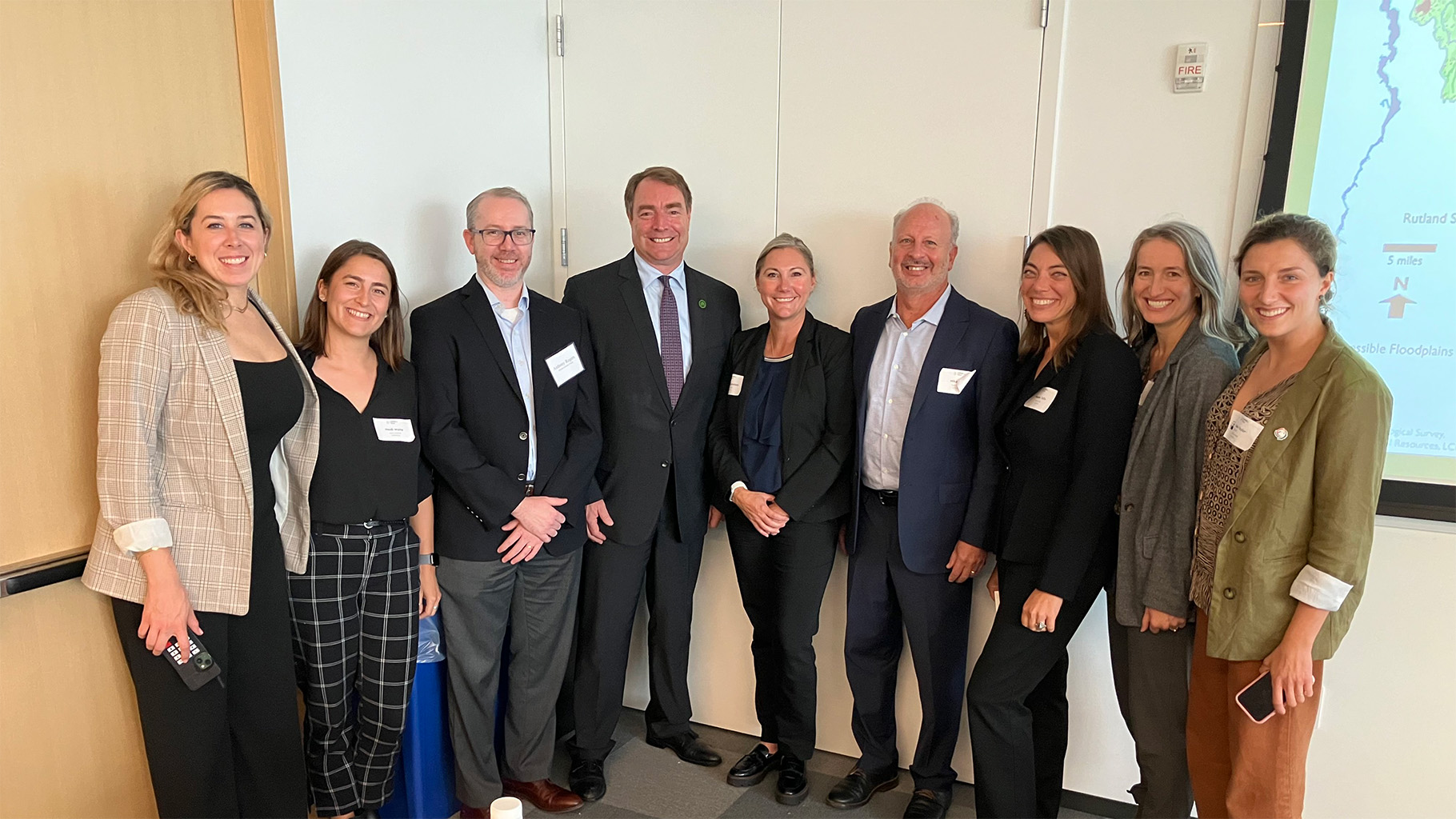Among all the hustle and bustle of New York City last month, you may have spotted three OST staff members running around on the streets and subway. Why were we, a team of Californians, in the Big Apple? Climate Week of course! Climate Week NYC is an annual event hosted by Climate Group in partnership with the United Nations General Assembly where creative, dedicated national and international leaders from local and government decision makers, nonprofits, legislature, and more come together to drive climate action. With over 900 events and activities across the City of New York, we participated in a suite of gatherings and meetings, spoke on panels, and even hosted two events of our own to explore the potential of climate finance and insurance for coastal resilience and nature based solutions (NBS).
First, we partnered with the California Department of Insurance and nonprofit Innsure to bring together funders, insurance experts, state government, and federal government over dinner to explore opportunities to incentivize community-up approaches to insurability planning to bolster economic resilience in a climate future. OST also co-hosted a workshop with the Center for Coastal Climate Resilience at UC Santa Cruz to discuss and learn about innovative policy and finance tools to accelerate NBS. This session, with opening remarks by Assemblymember Damon Connolly, brought together legislative members, private sector professionals, scientists, and practitioners to generate ideas for advancing NBS via innovative policy and finance tools.





